Christmas Classics
- thegrowl
- Dec 18, 2019
- 4 min read
Updated: Jan 2, 2020
Growing up, we heard stories that fueled our imaginations, and taught us lessons that we remember and use to this day.
“Watching them again or even just thinking about them, we can summon up intimate feelings about everything from first dates to bereavement, from appreciating friendship to getting over a midlife crisis. Films really do help us to preserve memories and identify significant milestones in our lives. They are as powerful as music in re-awakening our past selves,” Geoffrey Macnab writes in an article called The Films That Have Changed Our Lives.
Rudolph the Red Nosed Reindeer taught us that we don’t have to fit in. Frosty the Snowman taught us leadership. How The Grinch Stole Christmas taught us about kindness. A Christmas Carol taught us to be selfless, and The Polar Express taught us that seeing is not believing.
“Childhood Christmas movies filled me with Christmas spirit and extreme joy for how happy the holiday can make people,” says ThunderRidge senior Michael Robinson.
So, let us take a journey into our childhoods to remember the reasons why we loved these beloved stories.
Rudolph

Rudolph the Red Nosed Reindeer, made in 1964, portrays a beloved reindeer with a bright, red, glowing nose. The story follows Rudolph as he tries to fit into society. The movie demonstrates bullying, and brings it to light as a major issue in society. Musical numbers such as We’re A Couple of Misfits, which says, “Why am I such a misfit? I am not just a nit-wit. Just because my nose glows, seems I don't fit in,” allows kids to remember this important moral. These songs stay with us through our childhoods and even into our teen years.
Musical numbers such as this allow kids to remember this important moral: we don’t have to fit in, but that we need to be our own person. Rudolph shows that even with quirks, you can be a leader, because he is depicted as the leader of the reindeer that pulls Santa’s magic sled.
Frosty the Snowman
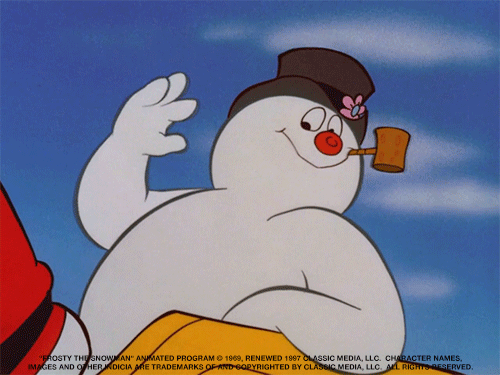
Frosty the Snowman, released in 1969, is about a snowman that comes to life from a magical hat. Once again, musical numbers play a critical role in the remembrance of this lesson.
The song Frosty the Snowman was written by Walter "Jack" Rollins and Steve Nelson in 1950. This number develops the movie and shows Frosty interacting with the children and him eventually leaving. When he must go away, he leaves Karen, the female protagonist, in charge of the others. Through this action, we learned that anyone can be a leader, no matter who you are. His leave of absence can be summed up in one simple, helpful quote: “Don't cry, Frosty's not gone for good. You see, he was made out of Christmas snow and Christmas snow can never disappear completely.”
How The Grinch Stole Christmas
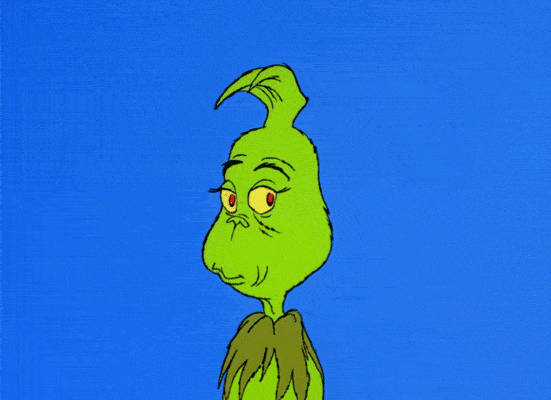
Similarly to Frosty the Snowman, How The Grinch Stole Christmas, made in 2000, teaches us about kindness and leadership; it teaches us how small acts — like a warm hug — can change a person. Its comical plot makes us laugh, but gets its point across with ease. This is the movie we grew up with, and the new one is nothing short of magical. Both share the same message: we can allow ourselves and the younger youth to be reminded of this message and to implement it into this sometimes terrifying world.
“It came without ribbons. It came without tags. It came without packages, boxes, or bags. The the Grinch thought of something he hadn't before. Maybe Christmas doesn't come from a store. Maybe Christmas...He thought ...means a little bit more.”
The Grinch learns about kindness and though it is not necessarily a physical action, it can change a person.The Grinch was a never-loved character in the beginning of the movie, but his leadership to return the Christmas decorations demonstrates both themes.
A Christmas Carol
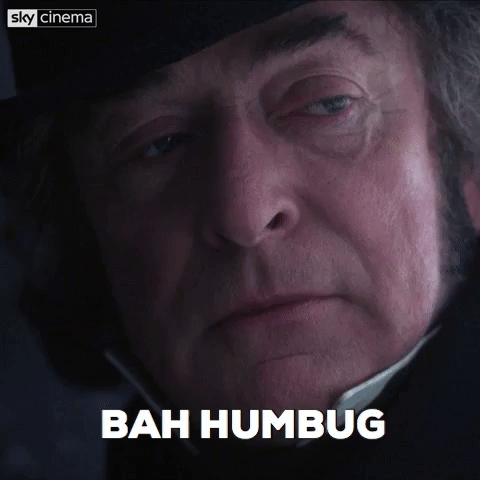
A Christmas Carol, 2009, takes us on a journey with Ebenezer Scrooge as he learns how to be selfless. This journey alongside Scrooge and the three ghosts teaches us the true meaning of Christmas through appreciating the merriment of the holiday season surrounded by our loved ones. It is an adaptation of Charles Dickens’ story, which turned an already classic to a worldwide film sensation. In addition to the true meaning of Christmas, it shows that we, as individuals, have the power to change our future.
“Ghost of the Future, I fear you more than any spectre I have seen. But as I know your purpose is to do me good, and as I hope to live to be another man from what I was, I am prepared to bear you company, and do it with a thankful heart.” In addition to the true meaning of Christmas, this quote shows that we, as individuals, have the power to change our future and that people can change for the better.
The Polar Express
The Polar Express, one of the most beloved Christmas movies from our childhood, teaches us how seeing is not always believing. It kept us in awe with wonder and our imaginations fluttered to life when the movie came on television. This movie is a classic and it will be a movie we will someday show our children for the same reason our parents showed us- mystery and awe supersedes reason and logic.
This awe of the bell has stuck with us and most likely, this idea of truly believing has stayed with us throughout our childhood into our adult years.
All of our childhood holiday movies have one thing in common, the universal idea that “sometimes the most real things in the world are the things we can't see,” Chris Van Allsburg, The Polar Express. These holiday movies bring our imagination to life and will stick with us for years to come. Though we grow old, these stories will never fade from our minds.
But one thing is clear to us all, “though I've grown old, the bell still rings for me, as it does for all who truly believe.” -Chris Van Allsburg.
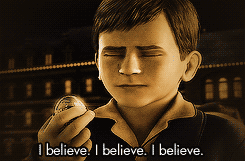




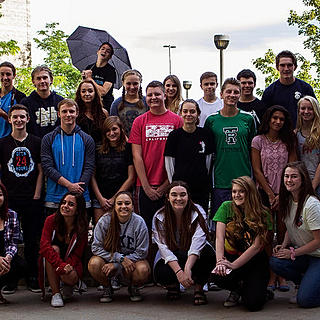



Comments